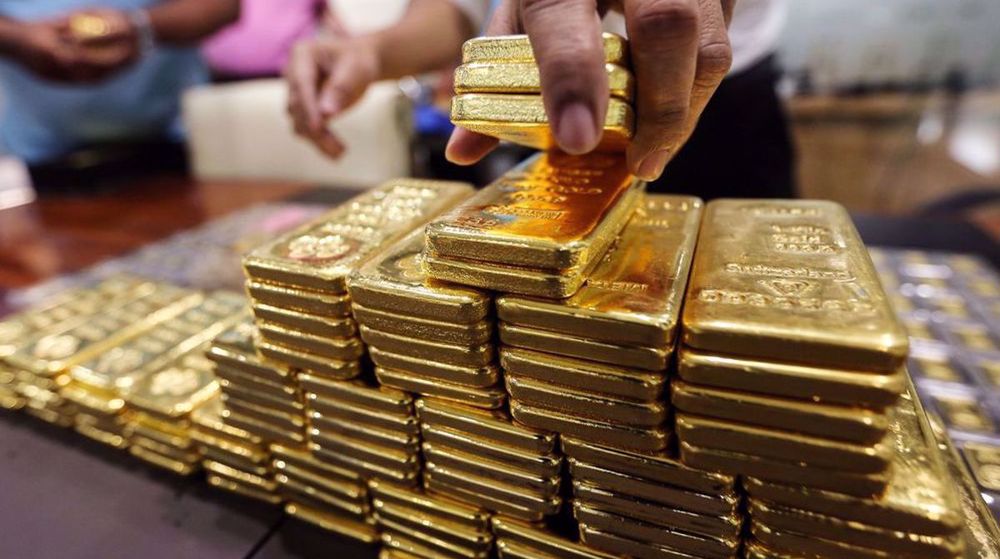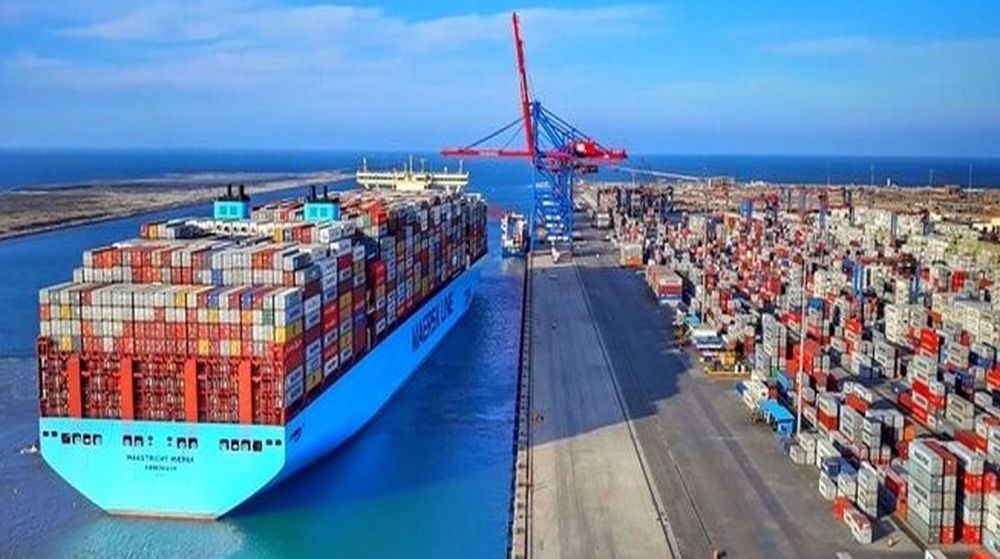Russia's AvtoVaz says in talks to make cars in Iran
A senior Russian official says the country’s largest carmaker AvtoVaz is negotiating the assembly and sale of its cars in Iran where there is massive pent-up demand for new automobiles.
"Negotiations are underway with a number of countries, such as Iran," Viktor Kladov, director for international cooperation and regional policy of Russian state conglomerate Rostec, was quoted as saying on Wednesday.
"I mean both the sales and the assembling," Russian TASS news agency quoted him as saying on the sidelines of the AERO INDIA 2019 exhibition.
AvtoVaz, majority-owned by France’s Renault and its alliance partner Nissan, produces Russia’s best-selling Lada brand.

Renault-Nissan has a 67.1 percent stake in the holding company that controls AvtoVAZ. The French company initially bought 25 percent of AvtoVaz in 2008 for $1 billion.
Nissan runs a plant with a capacity of 100,000 light vehicles a year in St Petersburg. PSA Peugeot Citroen, together with Mitsubishi, runs a plant in the region of Kaluga with a capacity of 125,000 cars a year.
Both Renault and its competitor Peugeot-Citroën put their development in Iran on hold after new US sanctions went into effect in August. Other Western firms, including German car and truck manufacturer Daimler, also dropped plans to expand their Iran business.
PSA had signed production deals worth 700 million euros, while Renault had announced a new plant investment to increase production capacity to 350,000 vehicles a year.
Earlier this month, Renault set a weaker full-year profit goal on the combined effect of withdrawal from Iran and setbacks over CEO Carlos Ghosn’s forced resignation last month over financial misconduct allegations.
There was no immediate reaction from either the French company or the Japanese automaker to Kladov’s announcement on Wednesday. Neither did the Russian official say whether Renault’s majority stake in AvtoVaz could affect plans in Iran.
Iranian vehicle manufacturer and dealer Iran Khodro was hoping to finalize a deal with Nissan for production of low-budget Datsun cars but the plan was apparently halted because of the US sanctions.
Peugeot manufacturer PSA and Renault moved swiftly to sign new production deals to upgrade their pre-sanctions partnerships in Iran after the West joined other countries to reach a nuclear deal with Tehran in 2015. President Donald Trump unilaterally withdrew the US from that deal in May and reimposed sanctions on Tehran.
Russian automakers are struggling to meet their government's desire for domestic brands to challenge the dominance of Western cars. AvtoVaz has fought hard in recent years to dispel the poor Soviet-era reputation of its top-selling Lada brand.
In 2017, Russian car sales totaled 1.75 million units, up 10 percent from the previous year, but still only around half of the nearly 3 million units sold in 2012 when the market was booming.
For AvtoVaz and its likes, Iran’s massive auto market offers a fertile ground for development and expansion in the absence of Western rivals.
Chinese carmakers are already making their presence felt, with a new dealership for automaker Chery recently setting up shop in Tehran.
Panic buying
Iran, home to more than 80 million people, has a huge demand for automobiles. According to Ministry of Industries, Mines and Trade, the country produced more than 1.5 million cars only in 2017, up some 14 percent from the year before.
Iran Khodro and Saipa control some 90 percent of market share, assembling Peugeot-, Renault- and Kia-branded vehicles from kits, in addition to Chinese cars in much lower numbers.
The new sanctions have seriously disrupted the car market, causing prices to shoot through the roof as factories have failed to provide cars on time.
"The enemy in the economic war is after damaging public contentment and the auto industry is one of the front lines in the war," Secretary of the Supreme National Security Council Ali Shamkhani said in September.
Occasional plans by Saipa and Iran Khodro to sell their future cars generate a rush to their websites, mostly by those who do not need them but seek to save on their purchases against the sagging rial or sell them in the open market at higher prices.
Prices of imported cars have risen about 300 percent and domestic car prices have also increased by 50%. A difference between the manufacturers’ price and the open-market price has led to a rise in dealership, which feeds on further price hikes.
Critics say the manufacturers play a major role in the conundrum. They say while the manufactures announce a lower price than that on the open market, they do not have enough stock, leaving customers forced to turn to the open market.
The manufacturers or people close to them, on the other hand, use insider connections to buy the limited supply.
'Capitulation': Israeli officials and media concede Gaza defeat as truce unfolds
'Gaza has won': Social media users react to ceasefire with mix of relief, joy
Iran seeks South Korea’s assistance for AI, fiber-optic projects
VIDEO | Iran's 'Eqtedar' (Power) maneuver
Israel hits HTS military target in Syria for 1st time since fall of Assad
VIDEO | Press TV's news headlines
Israel has slaughtered 13,000 students in Gaza, West Bank
VIDEO | More Zionist than Zionists: Biden’s legacy to be defined by Gaza genocide













 This makes it easy to access the Press TV website
This makes it easy to access the Press TV website